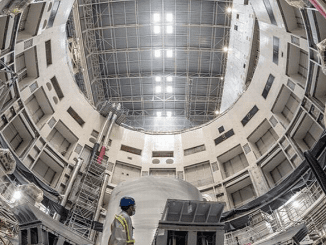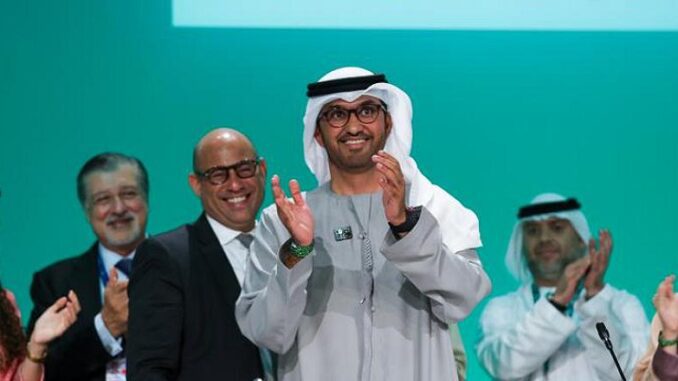
DUBAI, United Arab Emirates, December 13, 2023 – The 28th United Nations Climate Change Conference, COP28, concluded this afternoon with an unprecedented deal among nearly 200 Parties to the Paris Agreement that signals the “beginning of the end” of the fossil fuel era. The governments agreed to accomplish this by preparing for a swift, just, equitable transition, characterized by deep emissions cuts and scaled-up finance.
“Whilst we didn’t turn the page on the fossil fuel era in Dubai, this outcome is the beginning of the end,” UN Climate Change Executive Secretary Simon Stiell declared in his closing speech. “Now all governments and businesses need to turn these pledges into real-economy outcomes, without delay.”
The Parties came together in Dubai with a decision on the world’s first Global Stocktake of the Paris Agreement. They agreed to accelerate climate action before the end of the decade, keeping within reach the Paris Agreemeent’s goal of limiting the global temperature to 1.5°C above pre-industrial levels.
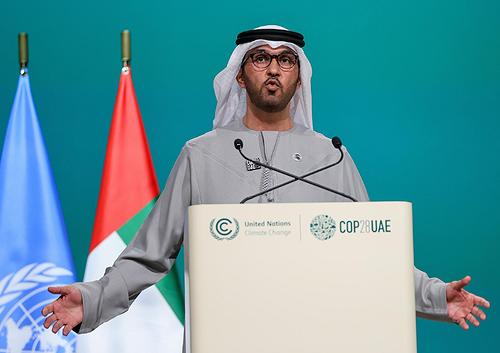
The Global Stocktake is viewed as the central outcome of COP28 as it is a progress report that contains every element that was under negotiation. The stocktake agreement can now be used by countries to develop stronger climate action plans, called nationally determined contributions, NDCs, which are due by 2025.
At the core of the Paris Agreement on climate and the achievement of its long-term goals, NDCs embody efforts by each country’s government to reduce national emissions and adapt to the ravages of climate change.
The Global Stocktake recognizes the science that indicates global greenhouse gas emissions must be cut 43 percent by 2030, compared to 2019 levels, to limit global warming to 1.5°C. But it documents that Parties are off track when it comes to meeting their Paris Agreement goals.
The stocktake decision calls on Parties to take actions towards achieving, at a global scale, a tripling of renewable energy capacity, and a doubling of energy efficiency improvements by 2030.
While some environmental groups, such as Greenpeace, grudgingly acknowledged the stocktake decision, other NGOs were more optimistic. Ani Dasgupta, president and CEO, World Resources Institute, said today, “Fossil fuels finally faced a reckoning at the UN climate negotiations after three decades of dodging the spotlight. This historic outcome marks the beginning of the end of the fossil fuel era.”
“Despite immense pressure from oil and gas interests, high ambition countries courageously stood their ground and sealed the fate of fossil fuels. Now a critical test is whether far more finance is mobilized for developing countries to help make the energy transition possible,” Dasgupta said.
“The resounding message is that no nation can sit out the energy transition,” he said. “The shift from fossil fuels must be fair and fast – and no one can be left behind.”
With developed countries taking the lead, the stocktake decision also calls on Parties to contribute to global efforts on:
- – accelerating efforts towards the phase down of unabated coal power, which is burning coal without carbon capture and storage.
- – accelerating zero- and low-emission technologies, including renewables, nuclear, low-carbon hydrogen production, abatement and removal technologies such as carbon capture and storage, particularly in hard-to-abate sectors;
- – accelerating efforts towards net zero emission energy systems, utilizing zero- and low-carbon fuels well before or by around mid-century;
- – transitioning away from fossil fuels in energy systems, in a just, orderly, and equitable manner, accelerating action in this critical decade, so as to achieve net zero by 2050 in keeping with the science;
- – accelerating and substantially reducing non-carbon-dioxide emissions globally, including methane emissions by 2030;
- – accelerating the reduction of emissions from road transport on a range of pathways, including infrastructure development and rapid deployment of zero and low-emission vehicles; and
- – phasing out inefficient fossil fuel subsidies that do not address energy poverty or just transitions, as soon as possible.
Closing statements showed how challenging it was for Parties to reach this compromise. Some decried the lack of a clear reference to fossil fuel phase out, weak language on coal and methane, and the risks associated with so-called transitional fuels, which the decision says “can play a role in facilitating the energy transition while ensuring energy security.”
In the short term, Parties are encouraged to come forward with ambitious, economy-wide emission reduction targets, covering all greenhouse gases, sectors and categories and aligned with the 1.5°C limit in their next round of NDCs, by 2025.
Countries Funded for Greater Resilience
The two-week-long conference in Dubai began with the World Climate Action Summit on the first two days of December, which brought together 154 heads of state and government. Parties reached a historic agreement on the operationalization of the Loss and Damage Fund and funding arrangements – the first time a substantive decision was adopted on the first day of the conference.
Commitments to the Loss and Damage Fund started coming in moments after the decision was gaveled; to date pledges total more than US$700 million.
There was more progress on the loss and damage agenda with a separate agreement that the UN Office for Disaster Risk Reduction and the UN Office for Project Services will host the secretariat of the Santiago Network for Loss and Damage.
The Santiago Network’s purpose is to arrange for quick technical assistance to developing countries that are particularly vulnerable to the dangers of climate change, a type of platform is authorized by the Paris Agreement.
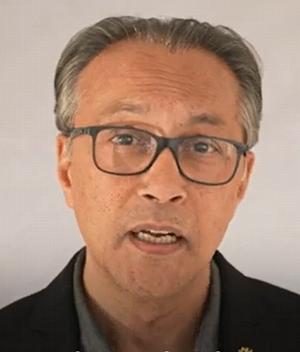
At COP28, Parties agreed on targets for the Global Goal on Adaptation, GGA, and its framework. These constructs identify where the world needs to get to in order to be resilient to the impacts of a changing climate and to assess countries’ efforts to reach that goal.
The GGA framework reflects a global consensus on adaptation targets and the need for finance, technology and capacity-building to achieve these targets.
On December 2, the Biden Administration announced a $3 billion pledge to the Green Climate Fund, the largest international fund dedicated to supporting developing countries to tackle climate change.
Speaking for the Washington, DC-based World Resources Institute, Dasgupta said, “The U.S. pledge to the Green Climate Fund shows that the Biden Administration is committed to helping developing countries quickly transition to net-zero carbon economies and build their resilience to climate disasters.”
“President Obama in 2014 pledged $3 billion, out of which $2 billion has been delivered so far. During the current replenishment cycle, peer countries like Germany, France and the United Kingdom have dug even deeper relative to the size of their economies,” said Dasgupta. “But today’s announcement can be a step towards delivering on President Biden’s commitment to provide $11.4 billion annually to developing countries by 2024.”
It All Takes Trillions
Climate finance was front and center at COP28, with UN Climate Change Executive Secretary Stiell calling it the “great enabler of climate action.”
The Green Climate Fund increased its second replenishment with six countries pledging new funding at the conference. Total pledges now stand at a record US$12.8 billion from 31 countries, with further contributions expected.
Eight donor governments announced new commitments to the Least Developed Countries Fund and the Special Climate Change Fund totaling more than US$174 million to date. In addition, new pledges, totaling nearly US$188 million so far, were made to the Adaptation Fund at COP28.
But the UN Climate Secretariat points out that, as highlighted in the Global Stocktake, these pledges fall far short of the trillions needed to support developing countries to accomplish clean energy transitions, implement their national climate plans, make efforts to adapt to a warming planet.
To deliver such funding, the Global Stocktake underscores the importance of reforming the multilateral financial architecture, and accelerating the ongoing establishment of new and innovative sources of finance.
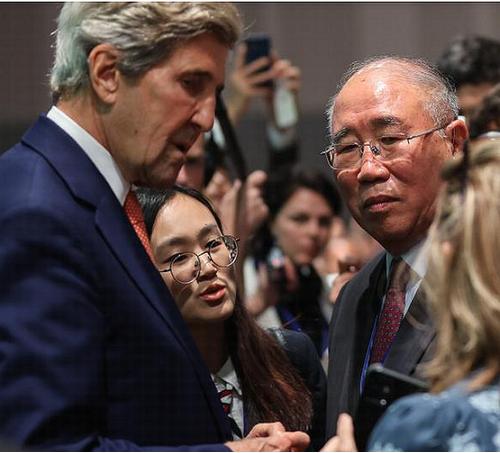
At COP28, discussions continued on setting a new collective quantified goal on climate finance in 2024, taking into account the needs and priorities of developing countries.
The new goal, which will start from a baseline of US$100 billion a year, will be a building block for the design and later implementation of national climate plans that are due to UN Climate by 2025.
Looking ahead to the transitions to decarbonized economies and societies that lie ahead, there was agreement that the mitigation work program, which was launched at COP27 last year, will continue until 2030, with at least two global dialogues held each year.
Inclusivity was a stated goal of the COP28 Presidency, and to that end, world leaders at COP28 were joined by civil society, business, Indigenous peoples, youth, philanthropy, and international organizations in a spirit of shared determination to close the gaps to 2030.
Some 85,000 participants attended COP28 to share ideas and solutions, to network, and to build partnerships and coalitions.
“The decisions taken here today also reemphasize the critical importance of empowering all stakeholders to engage in climate action; in particular through the action plan on Action for Climate Empowerment and the Gender Action Plan,” the UN Climate Secretariat said.
Strengthening collaboration between governments and key stakeholders
In parallel with the formal negotiations, the Global Climate Action space at COP28 provided a platform for governments, businesses and civil society to collaborate and showcase their real-world climate solutions.
The High-Level Champions, under the Marrakech Partnership for Global Climate Action, launched their implementation roadmap of 2030 Climate Solutions. This set of solutions, with insights from non-Party stakeholders on effective measures that should be grown and replicated to halve global emissions, would address adaptation gaps and increase resilience by 2030.
COP28 also saw announcements intended to boost the resilience of food and public health systems, and to reduce emissions related to agriculture and methane.
UN Climate Change Looks Ahead
Negotiations on an enhanced transparency framework at COP28 appear to have laid the groundwork for a new era of implementation for the Paris Agreement, which was unanimously adopted by all UN member nations in 2015.
UN Climate Change is developing transparency reporting and review tools for use by Parties. The tools were showcased and tested at COP28, and the final versions of the reporting tools should be made available to Parties by June 2024.
Parties at COP28 agreed to accept Azerbaijan as host of COP29 from November 11-22, 2024, and Brazil as COP30 host from November 10-21, 2025.
These next two years will be “critical,” the UN agency emphasizes. At COP29, governments must establish a new climate finance goal, reflecting the scale and urgency of the climate challenge.
At COP30, governments must come prepared with new nationally determined contributions that are economy-wide, cover all greenhouse gases and are fully aligned with the 1.5°C temperature limit – a tall order for some of those that are most dependent on coal, oil and gas.
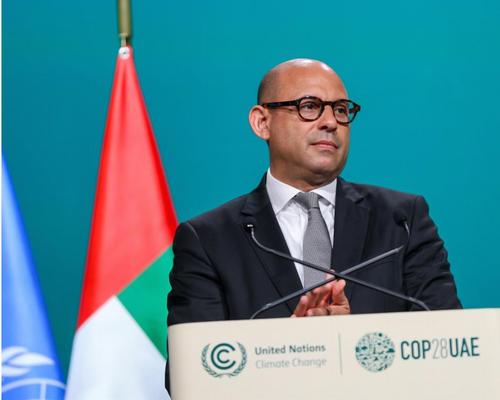
“We must get on with the job of putting the Paris Agreement fully to work,” said Stiell. “In early 2025, countries must deliver new nationally determined contributions. Every single commitment – on finance, adaptation, and mitigation – must bring us in line with a 1.5-degree world.”
“My final message is to ordinary people everywhere raising their voices for change,” Stiell declared. “Every one of you is making a real difference. In the crucial coming years, your voices and determination will be more important than ever. I urge you never to relent. We are still in this race. We will be with you every single step of the way.”
Dr. Sultan Ahmed Al Jaber, COP28 President and Minister of Industry and Advanced Technology, UAE, gaveled COP 28 to a close at 5:11 pm local time.
“The world needed to find a new way. By following our North Star, we have found that path,” said the COP28 president during his closing speech. “We have worked very hard to secure a better future for our people and our planet. We should be proud of our historic achievement.”
Reactions Cover the Spectrum
The European Union was pleased with the “successful conclusion.” President of the European Commission, Ursula von der Leyen said today, calling the outcome, “a powerful demonstration of the value of multilateralism in tackling our planet’s biggest challenges.”
“It is good news for the whole world that we now have a multilateral agreement to accelerate emission reductions towards net zero by 2050, with urgent action in this critical decade. This includes an agreement by all parties to transition away from fossil fuels. We have agreed on reducing global emissions by 43% by 2030, in line with the best available science, to keep 1.5 Celsius within reach. This will keep us on track with the goals of the Paris Agreement, and speed up the transition to a cleaner and healthier economy,” von der Leyen said.
“2023 has been the hottest year on record, and so it is fitting that we also make it the most ambitious year on record for climate action. Parts of Southern Europe have reached almost 30 degrees Celsius (86 degrees F) again this week, in the middle of December, and we are not alone in facing such extreme weather,” the EU leader said.
Climate adaptation is becoming increasingly important, she said, and envisioned the European Union as “standing in solidarity and working in partnership with countries all around the globe.”
The EU is dedicating record amounts of money to international climate finance, including adaptation finance, and has also helped operationalise a new Loss and Damage Fund at COP28. President von der Leyen said that together with its Member States, the European Union has contributed over two-thirds of the initial funding pledges.
“We stand ready to do more, and we know that more must be done. For example, COP28 has also been the opportunity to discuss carbon pricing with other Parties, so that more countries start to put a price on pollution. And we have also been able to lay the ground for broader financial reforms, new innovative sources of funding, and aligning all financial flows with the Paris Agreement,” the EU leader said.
In Washington, DC, President Joe Biden, who did not attend COP28, expressed satisfaction and hope as the agreement on the Global Stocktake was announced.
“Eight years ago,” Biden said, “the world came together in Paris to announce a historic commitment to address climate change and protect the planet for future generations. On my very first day in office, I took action to return the United States to the Paris Agreement, restoring America’s global climate leadership.” The previous administration under President Donald Trump had pulled the United States out of the Paris Agreement.
Since then, said Biden, “my administration has set the United States on an unprecedented course to tackle the climate crisis at home and abroad – securing the largest climate investment in the history of the world, unlocking clean energy breakthroughs that will power a clean economy and create thousands of jobs, and rallying leaders around the world to raise our collective ambition.”
“Today, at COP28, world leaders reached another historic milestone – committing, for the first time, to transition away from the fossil fuels that jeopardize our planet and our people, agreeing to triple renewable energy globally by 2030, and more, Biden said. “While there is still substantial work ahead of us to keep the 1.5 degree C goal within reach, today’s outcome puts us one significant step closer.”
Biden credited vulnerable countries and young people for “demanding action from those in power.”
“They remind us that a better, more equitable world is within our grasp. We will not let them down,” Biden promised.
“The climate crisis is the existential threat of our time. But as America has always done, we will turn crisis into opportunity,” Biden pledged, “creating clean energy jobs, revitalizing communities, and improving quality of life. It is our collective responsibility to build a safer, more hopeful future for our children. We can’t be complacent. We must keep going, and we will.”
Featured image: Sultan Al Jaber, COP 28 President and Minister of Industry and Advanced Technology, UAE, and CEO of the Abu Dhabi Nation Oil Company, declared COP 28 adjourned at 5:11 pm local time, December 13, 2023, Expo City Dubai, UAE (Photo by IISD/ENB | Mike Muzurakis)
© 2023, Environment News Service. All rights reserved. Content may be quoted only with proper attribution and a direct link to the original article. Full reproduction is prohibited.

